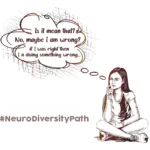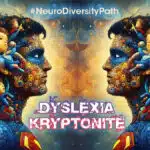Have you ever wondered why some students struggle with numbers, even with extra help and practice? What if I told you there’s a hidden strength waiting to be unlocked within these challenges? In the world of education, dyscalculia often remains misunderstood and overlooked. But what if we could change that? What if we could empower these students to overcome and thrive? In today’s post, we will delve into the world of dyscalculia, uncovering its mysteries and discovering the keys to unlocking potential. By the end, you’ll gain valuable insights and practical strategies to support and empower students with dyscalculia. Let’s embark on this journey together and unlock the true mathematical genius within each student.

Unraveling the Mystery of Math Difficulties
Defining Dyscalculia
Dyscalculia is more than just “bad at math.” It’s a specific learning disability that affects a person’s ability to understand and work with numbers. Recognizing the signs early is crucial. Students with dyscalculia may struggle with basic arithmetic, telling time, or understanding mathematical concepts. It’s important to understand that dyscalculia is not a reflection of intelligence; it’s a difference in brain wiring. By identifying and acknowledging dyscalculia, educators, and parents can provide targeted support to help students succeed.
Exploring the Causes
The exact causes of dyscalculia are still being researched. While no single known cause exists, genetics and brain development play significant roles. Differences in brain structure and function can affect how individuals process numerical information. Environmental factors, such as early math experiences and educational opportunities, also contribute. Understanding these factors can inform effective interventions. By addressing biological and environmental influences, we can better support students with dyscalculia.
Recognizing the Impact
Dyscalculia can have far-reaching effects on academic and daily life. In addition to struggling with math concepts, students may experience frustration, anxiety, and low self-esteem. These challenges can extend beyond the classroom, affecting social interactions and well-being. It’s essential to recognize and address these emotional and psychological aspects of dyscalculia. Creating a supportive and understanding environment is key to helping students overcome these obstacles and reach their full potential.
Recognizing the Strengths of Students with Dyscalculia
Unleashing Creativity and Problem-Solving Skills
Students with dyscalculia often possess unique strengths that go beyond numbers. They may excel in areas such as creativity, spatial reasoning, and critical thinking. Encourage them to explore these talents and apply them to various subjects and real-life situations. Engage them in activities that stimulate their imagination and problem-solving abilities. Focusing on their strengths can boost their confidence and foster a positive attitude towards learning.
Developing Resilience and Perseverance
Navigating the challenges of dyscalculia builds resilience. These students learn to persevere in the face of adversity, developing grit and determination. Acknowledge their efforts and celebrate their progress, no matter how small. Encourage a growth mindset where mistakes are viewed as opportunities for learning and growth. By fostering resilience, you equip students with the mindset and skills to overcome academic and life obstacles.
Cultivating Empathy and Understanding
Students with dyscalculia gain empathy and understanding through their own experiences. They learn to appreciate the struggles of others and offer support and encouragement. Foster a culture of empathy in the classroom, where differences are celebrated and everyone feels valued. Encourage students to share their experiences and learn from each other. By cultivating empathy, you create a supportive community where all students can thrive, regardless of their challenges.
Empowering Students to Overcome Math Challenges
Multisensory learning engages multiple senses to reinforce mathematical concepts. Incorporate hands-on activities, visual aids, and auditory cues into lessons. This approach accommodates different learning styles and helps students with dyscalculia grasp abstract concepts more effectively. Encourage exploration and experimentation to deepen understanding. By engaging multiple senses, you enhance retention and comprehension of mathematical concepts.
Structured support and consistent practice are essential for students with dyscalculia. Break down math concepts into manageable steps and provide clear, step-by-step instructions. Offer plenty of opportunities for practice with feedback and reinforcement. Use scaffolded learning experiences to gradually build skills and confidence. Consistency and repetition are key to reinforcing learning and building mastery. Provide additional support as needed, such as peer tutoring or one-on-one instruction. By providing structured support and practice, you empower students to build their math skills and overcome challenges.
Foster a growth mindset where students understand that intelligence can be developed through effort and perseverance. Please encourage them to advocate for themselves by communicating their needs and seeking assistance. Teach them to embrace challenges as opportunities for growth and learning. Empower them to take ownership of their learning journey and seek out resources and support. By fostering a growth mindset and self-advocacy skills, you equip students with the confidence and resilience to tackle math challenges head-on.
Supporting Students with Dyscalculia
Creating an inclusive classroom environment is crucial for supporting students with dyscalculia. Foster collaboration among students, where they can learn from each other’s strengths and support one another. Research by Dr. Daniel Ansari at the University of Western Ontario highlights the importance of peer interaction in improving mathematical skills for students with dyscalculia. Encourage group activities and cooperative learning projects where students can work together to solve math problems. This collaborative approach promotes engagement and enhances learning outcomes for all students.
Tailor instruction to meet the individual needs of students with dyscalculia. Provide accommodations and modifications, such as extended time on tests, use of manipulatives, and simplified instructions. Dr. Lynn Fuchs from Vanderbilt University emphasizes the effectiveness of individualized interventions in supporting students with learning disabilities in mathematics. By providing personalized support, you empower students to access the curriculum and demonstrate their knowledge effectively. Regularly assess student progress and adjust accommodations as needed to ensure ongoing success.
Nurturing a Positive Math Mindset
Celebrating Progress and Effort
Celebrate students’ progress and efforts, regardless of the outcome. Encourage a growth mindset where mistakes are seen as opportunities for learning and improvement. Dr. Carol Dweck’s research on mindset emphasizes the importance of praising effort over innate ability. By focusing on effort and progress rather than just outcomes, you cultivate resilience and perseverance in students with dyscalculia.
Providing Encouragement and Support
Offer continuous encouragement and support to students with dyscalculia. Remind them of their strengths and past successes. Dr. Tanya Evans from the University of Denver emphasizes the role of social support in mitigating the negative impact of math anxiety on learning outcomes. Positive reinforcement and encouragement help students develop confidence in their math abilities and overcome challenges.
Promoting a Growth Mindset
Promote a growth mindset where students believe their math skills can improve with effort and practice. Please encourage them to adopt a positive attitude towards math and embrace challenges as opportunities for growth. Dr. Jo Boaler’s work at Stanford University highlights the benefits of a growth mindset in improving math performance and reducing anxiety. By fostering a positive math mindset, you empower students to approach math with confidence and enthusiasm.
Inspiring Examples of Triumph Over Dyscalculia
Real-Life Examples of Achievement
Numerous success stories exist of individuals with dyscalculia overcoming challenges to achieve success. For instance, Steve Jobs, the co-founder of Apple Inc., struggled with dyscalculia but became one of the most influential innovators of our time. Similarly, Cher, the renowned singer and actress, has openly discussed her struggles with dyscalculia. These inspiring examples serve as a reminder that dyscalculia does not define one’s potential. By highlighting these success stories, you can inspire and motivate students with dyscalculia to persevere and pursue their dreams.
Learning from Role Models
Encourage students with dyscalculia to learn from role models who have overcome similar challenges. Provide opportunities for them to explore the stories and achievements of successful individuals with dyscalculia. Dr. Maryanne Wolf’s research at Tufts University emphasizes the importance of role models in shaping students’ attitudes and beliefs about their abilities. By showcasing relatable role models, you can instill hope and confidence in students with dyscalculia, showing them they can achieve great things despite their challenges.
“In every difficulty lies opportunity.”
— Albert Einstein
In concluding this exploration of empowering students with dyscalculia, it’s evident that individuals can triumph over mathematical challenges with the proper support and mindset. We’ve unraveled the mystery of dyscalculia, recognizing it not as a limitation but as a difference in brain wiring. By embracing neurodiversity, we’ve tapped into the unique strengths of these students, fostering creativity, resilience, and empathy. Practical strategies, supported by research from esteemed scholars, have empowered educators to create inclusive classrooms where every student can thrive. Real-life success stories have shown us that with determination and perseverance, individuals with dyscalculia can achieve greatness. Personally, this journey has reaffirmed my belief in the power of education to transform lives and break down barriers. Let’s continue championing inclusivity and support for all learners, ensuring every student can reach their full potential.
What are your thoughts on empowering students with dyscalculia? Share your insights and experiences in the comments below. Let’s keep the conversation going!




